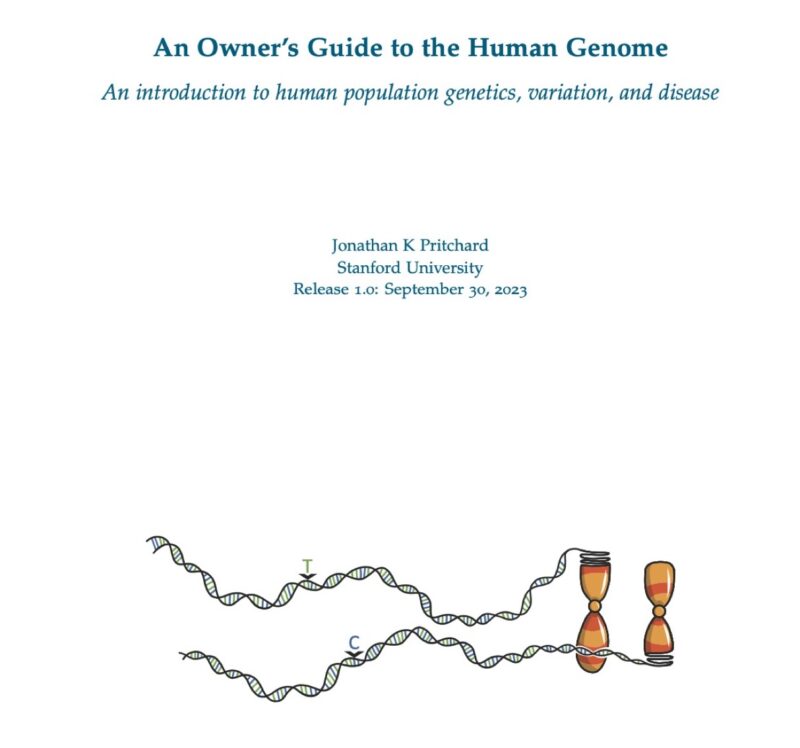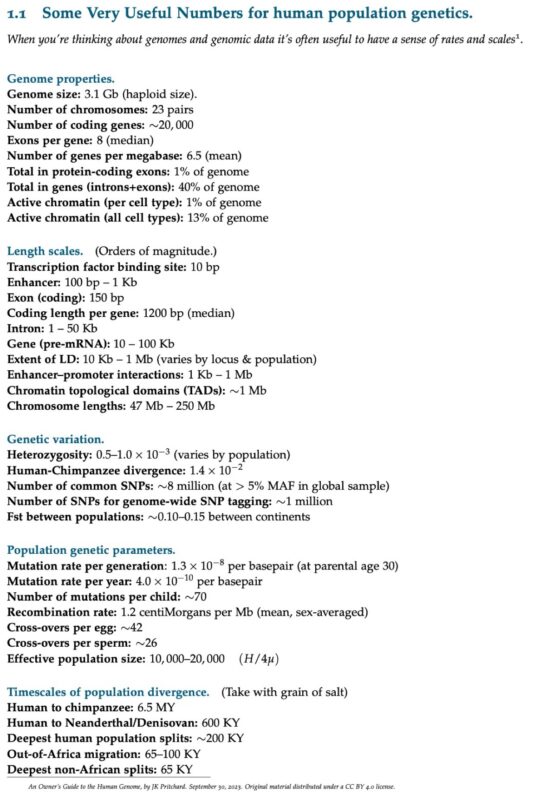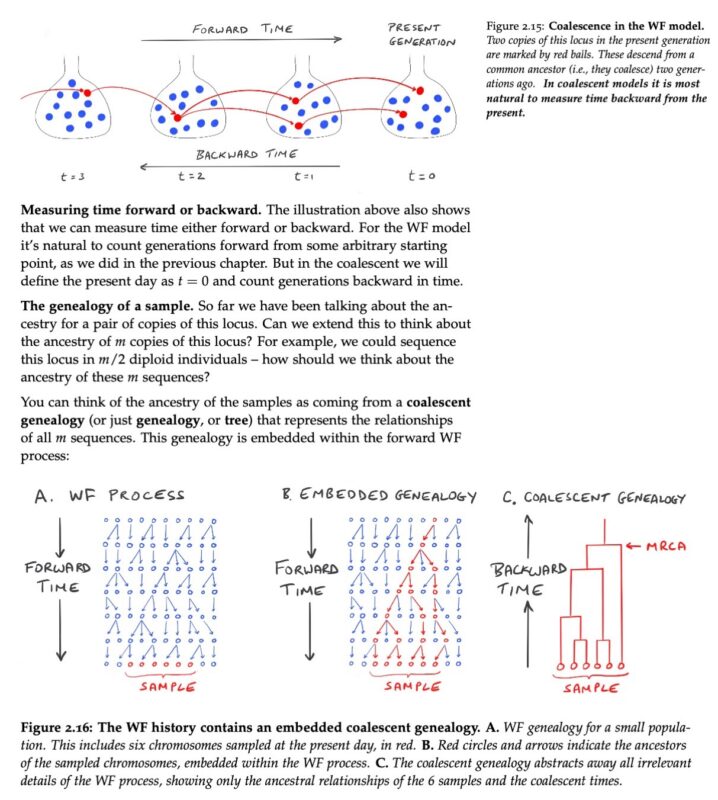Jonathan Pritchard, Professor in the Departments of Biology and Genetics of Stanford University, shared a thread on X:
“I am delighted to release the first half of my new open-access online textbook in human population genetics.

The book aims to provide a unified view of human variation, population genetics, human history and trait genetics / GWAS. I wrote this partly because I find a lack of suitable readings for teaching, and partly to connect the popgen and statgen world views in an accessible format. Another goal is to show how quantitative thinking and theory can illuminate interpretation of biological data. Here’s a reference page about useful numbers for human genome data:

Part 1 of the book includes an overview of human genomics; an introduction to human variation; modern DNA sequencing; and an introduction to human mutation. My undergrads are reading the variation chapter for tomorrow’s lecture. I also tackle human mutation, but with more of an evolutionary and human genetics focus than most other introductory materials.
Part 2 of the book tackles human population genetics. Some themes are familiar from other popgen texts, but I try to focus on building intuition and human examples in many cases. Here is a bit about the difference between forward-in-time and backward-in-time models:

We cover recombination and LD in depth, as it’s often difficult to get intuition for these topics as well as the wonderful PRDM9 story, and a bit on haplotype models.
Chapter 2.4 tackles models of structure in population genetics (we defer PCA and Structure/Admixture to Part 3 which I’ll release later). The last three chapters of Part 2 of the book develop models of selection, with an emphasis on the interplay of selection and drift and a summary of what we know about different types of selection in human genomes.
Part 3 of the book focuses on human history. I’ve already written rough drafts of these chapters, so I expect to release them in the coming months and Part 4 will cover the genetic basis of trait variation. This will have some basic chapters for students on GWAS, etc, but I also plan to emphasize the links between human popgen and statgen, and argue that neither can be understood without the other.
I have many many people I could thank, but I’ll limit this to Anna Di Rienzo (this is motivated in part by a course that we co-taught from 2001-2013); Molly Przeworski from whom I have learned so much on all these topics; also many people who commented on earlier drafts including especially Molly Przeworski and Doc Edge who both heroically read this twice and gave me many helpful comments; also our many close collaborators and lab members who have been wonderful partners in science, and who have also taught me much over the years.”
Source: Jonathan Pritchard/X
About OncoDaily
OncoDaily was founded in 2023. It is a US-based oncology media platform, which features the latest news, insights, and patient stories from the world of oncology. Within a short period of time it became one of the leading oncology media platforms globally.
OncoDaily gathers content from various sources, including social media posts from renowned oncologists from all over the world, news from oncology societies and cancer centers, patient and survivor stories, and career-related information for professionals.
The mission of OncoDaily is to empower patients, survivors, and professionals with the knowledge and inspiration they need to fight cancer. The motto of OncoDaily is “Cancer doesn’t take a day off – neither do we“.
